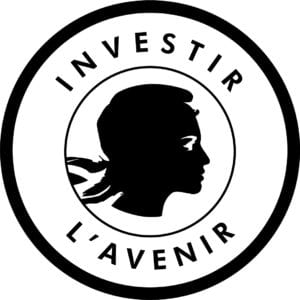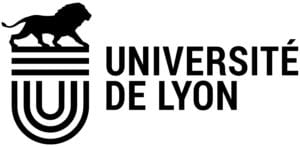In the School of the Anthropocene - Body and Pandemic: The Social Effects of Confinement / Disrupted Proximity / The Dance Floor as a Political Ring

- 28/01/2021
- Local: 6:30 pm
Paris: 6:30 pm - Hotel 71 71 Quai Perrache, 69002 Lyon, Lyon, FR
- France
- French / English / Spanish
- https://ecoleanthropocene.universite-lyon.fr/universite-ouverte-mondiale-sur-le-changement-global-202376.kjsp?RH=1610632597681&RF=1544783438360
- https://www.facebook.com/events/316063099797597/
BODIES AND PANDEMIC: THE SOCIAL EFFECTS OF CONTAINMENT
6:30 pm / 7:45 pm
A dialogue between Wendy Delorme and Joana Moll on these issues of our time, moderated by the philosopher and translator Xavier Bassas, a discussion that will take place simultaneously in Barcelona and Lyon, both in person and virtually. In this session, Wendy Delorme, queer writer and activist, and Joana Moll, artist and researcher, will converse on the effects of the pandemic on the intimacy of bodies and social relationships. The pandemic has forced us to minimize physical contact with others, creating a social distance that we are not used to. The body has ceased to be a space for relationships and intimacy and has become a surface that we want to protect from contact. This is a new and unprecedented social situation in a globalized world where the habit of constant mobility, spaces where crowds meet and the possibility of physical encounters and contacts between bodies dominates. From the desire for encounter, movement and the bodies of others we have moved to isolation, confinement at home and suspicion of others. But what does this reveal about our relationships and lifestyles? What do we want to do with these changes and how can we use them to rethink our physical health and social relationships? There is also the question of what technological possibilities we want to retain or avoid in our new post-pandemic society?
With:
- Wendy Delorme (France), writer and performer
Joana Moll (Spain), artist and researcher
Hosted by :
Xavier Bassas (Spain), philosopher, translator and editor.
In partnership with the Centre for Contemporary Culture of Barcelona
In partnership with the French Institute of Barcelona and the Night of Ideas
THE DISTURBED PROXIMITY
8:15 pm / 8:45 pm
A round table and performances on disturbed proximity, on modified and distanced bodies. The pandemic proposes an experience that profoundly disrupts our relationship to the body. Contagiousness, confinement, circulation control, surveillance generate tensions, fears, and anger that government rationalizations do not manage to contain. The result is a world of disturbed proximities, of suspected bodies. The first and then the second confinement led to the experimentation of forced proximities and imposed distances. Digital technologies have been mobilized to project our bodies elsewhere through images and the digitized sound of voices. These constrained and shared experiments have generated happy initiatives aimed at envisioning a New World, the chronicles of which began in March 2020, a world in which avatars circulate freely in the noosphere and in which modified bodies will be legion.
With:
- Raphaële Andrault (France), philosopher of the body and health
- Jean-Baptiste Cabaud (France), writer and poet
- Christophe Marquette (France), Director of Research at CNRS
- Yann Minh (France), artist
- Karelle Prugnaud (France), director, actress, performer
Sequence conceived and animated by :
Philippe Liotard (France), sociologist and anthropologist
THE DANCE FLOOR AS A POLITICAL RING
10 pm / 11:30 pm
At the heart of the dancefloors of the globe, the capacity of bodies to connect us through movement, contact, co-presence and the way they allow certain people to claim their identities or struggles make them essential tools for individual and collective emancipation.
While digital attempts have been made to compensate for the closure of clubs and festive venues, the lack of physical proximity and interaction has quickly become apparent, especially for communities that find in these spaces-time refuges, but also common battlegrounds. At a time of empty dance floors, closed clubs and a bullied party, how can we think of a dancefloor policy that would give back to the night its role of democratic effervescence? In what way is the dancefloor a laboratory for new forms of citizenship and commitment and simply the expression of a way of life and freedoms that are undoubtedly "essential"?
With:
- Vincent Carry (France), director of Arty Farty, creator of Nuits Sonores
- Bogomir Doringer (Serbia), artist
- Dave Haslam (UK), DJ and writer
Hosted by :
Agnès Gayraud (France), philosopher
Panel co-programmed in collaboration with European Lab
Partners













